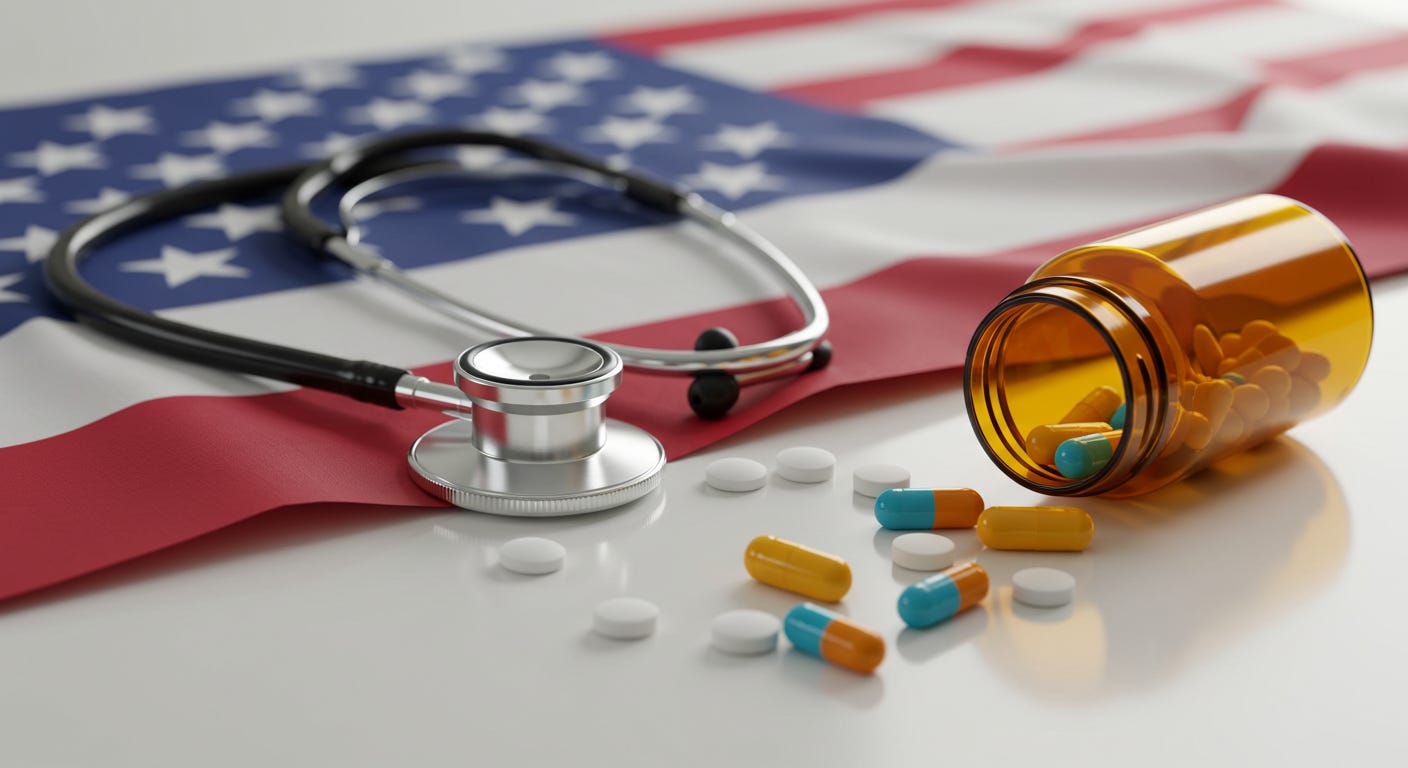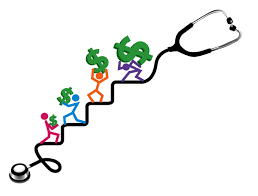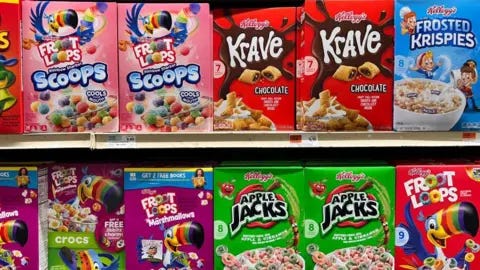Is There a Remedy to Our National Health Crisis?
The 1960s were very different from America today. Back then, only about 13% of people were obese, and most enjoyed better health. Now, 60 years later, about half of Americans have weight issues and battle chronic illnesses.
We’re less active and eat more chemicalized and addictive foods that lead to increased dosages of medications. The giant agricultural, giant food, and giant pharmaceutical industries all rely on chemicals to keep us sick and sedated, profiting off our constant misery. In the meantime, the government grapples with escalating healthcare costs and mounting debt.
But it’s a circular issue. If our government is in bed with big agriculture, big food and big pharma, it will pay the cost on both ends. It subsidizes bad foods that people eat and then pays for them in Medicare and Medicaid costs.
Rising Health Care
Health care costs are incredibly high because of chronic disease. The CDC says 90% of health care spending goes toward managing the problem. But moving the financial burden between the government, corporations, insurers, healthcare providers, and families is as futile as rearranging deck chairs on the Titanic.
The scope of the problem can be summed up in this disparity: the US is the top global economy with nearly $5 trillion in healthcare expenditures, yet it ranks only 49th in life expectancy. And that’s a rate that’s expected to drop to 66th in the world.
Four in ten suffer from at least two major chronic diseases, which puts healthy people not only in a noticeable minority but also has the US doing worse than other developed countries—and even some developing countries.
Congratulations, America—you’ve become one of the sickest developed countries in the world.
Root Causes
On the surface it seems Americans have become indifferent about their health, but what has really happened is that they were misled about nutrition by health authorities.
The low-fat diet was supposed to prevent heart disease. Polyunsaturated fats from seed oils replaced saturated fats found in beef and other foods. It wasn’t an innocent mistake, but rather an agenda by food manufacturers to transform Americans' diets. The effect today is that 73% of American foods are now ultra-processed with unhealthy fats.
It’s true that we’re responsible for our own health, and most people know the choices they should be making. Unfortunately, Americans consume an average of 17 teaspoons of sugar per day, leading to widespread obesity and disease. But it’s also true that our choices are becoming incredibly limited.
Even organic foods are increasingly being infiltrated by these companies. As we strive to make the best food choices, we’re misled by lax regulations that permit label inaccuracies. If we opt for whole foods, we now face the reality that they’re being secretly sprayed, waxed, and potentially vaccinated in the near future.
Americans could definitely focus more on their health. But when you put incredibly delicious, yet unhealthy, food right in front of people—especially when they don't fully understand the risks—they're going to eat it.
The hypocrisy of pharmaceutical companies offering weight-loss drugs like Ozempic and Wegovy to fix obesity is perverse. The issue already has a clear solution—a sustainable lifestyle change, focusing on proper diet, sleep, and exercise.
Government Health Initiatives
Now Robert F. Kennedy Jr. has come to Washington with the intention of making America healthy again. Part of his new mandate will include overseeing the US Food and Drug Administration. The agency is in charge of ensuring the safety of pharmaceuticals and the US food supply, and Kennedy has pledged to take a sledgehammer to it while firing employees he says are part of a corrupt system.
Of course he’ll encounter significant obstacles and resistance from a power structure that resists change. Currently, several agencies are involved in food regulation, resulting in a slow and fragmented system that struggles to effectively address specific categories like ultra-processed foods. An overhaul will be necessary.
The food industry itself, when faced with regulations, may resist or adapt through product reformulation, lobbying efforts, or marketing strategies. It may be more productive for Kennedy to achieve industry collaboration by working with food manufacturers to gradually reduce harmful ingredients and encourage voluntary standards for healthier food production. We’ll see if he uses the carrot or stick approach.
There will also be political pushback, especially from agricultural states. This might mean Kennedy has to prove that support of sustainable agriculture practices prioritizing nutrient-rich crops is profitable. But he’ll have to tackle the pervasive influence of pharmaceutical industry pressure while doing so.
Besides being a health diplomat, Kennedy will have to implement bold changes unseen in modern history:
Public education (starting in schools) that enhances nutrition literacy, promotes healthy eating, and supports local farmers' markets.
Updating national dietary guidelines to reflect the latest (unbiased) scientific research. Board members with industry influence must resign.
Reforming federal food programs, such as school lunch programs, to provide healthier food choices without industry influence on guidelines.
Ultimately, the challenge isn’t just about eliminating or making junk food healthier. Fruit Loops may have some less harmful chemicals, but it’ll still be a nutrient-devoid junk food. MacDonald’s burgers might contain fewer antibiotics, but they’re still served on white buns, while supermarkets will continue to offer Kraft dinners, Doritos and every kind of processed, packaged garbage. In the end, consumers must be willing to change their dietary habits. The question is, how much have they become sedated with junk food?
I'm grateful you're here! I want to make my articles available to everyone, which is why they're free. But if you find them helpful, please consider a small paid subscription. It helps cover the costs of running this site and allows me to continue independent, unbiased research and journalism. Thanks for your support!
If shy about commitments, feel free to leave a one-time (coffee) tip through a Ko-fi contribution! Your generosity is greatly appreciated!
© 2025 (C) Jorg Mardian; "StrongHealth" on Substack.com








